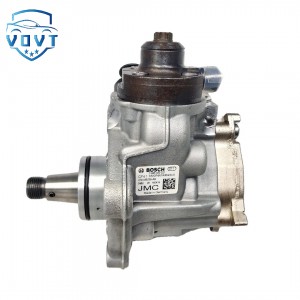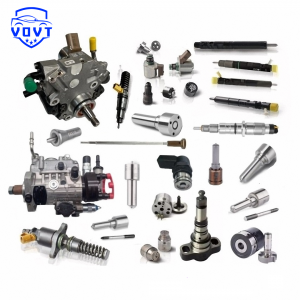Diesel Fuel Injection Pump 0 460 406 056 VE6/10F1150R287 Engine Auto Engine Part 0460406056
products description
| Reference Code | 0 460 406 056 |
| MOQ | 1 PCS |
| Certification | ISO9001 |
| Place of Origin | China |
| Packaging | Neutral packing |
| Quality Control | 100% tested before shipment |
| Lead time | 7~15 working days |
| Payment | T/T, Western Union, Money Gram, Paypal, Alipay, Wechat |
Energy-Saving Application of Oil Pumps in Hybrid Electric Vehicles
Abstract
Hybrid electric vehicles (HEVs) place new demands on engine lubrication and hydraulic systems due to their frequent start–stop cycles, wide operating range, and variable load characteristics. Traditional fixed-displacement oil pumps are unable to match these dynamic operating conditions, often resulting in excessive parasitic power loss and reduced overall fuel efficiency. This study investigates the energy-saving applications of advanced oil pump technologies in HEVs, focusing on variable-displacement pumps, electronically controlled pumps, and intelligent lubrication strategies.
The research first analyzes the oil pressure and flow requirements of hybrid powertrains under different operating modes, including engine-off coasting, low-load electric driving, and rapid engine restart during hybrid transitions. Results indicate that HEVs require a lubrication system capable of fast pressure buildup, precise flow control, and efficient standby operation. Conventional mechanical pumps oversupply flow by up to 30–60% during low-load conditions, causing avoidable energy loss.
To address these challenges, a variable-displacement oil pump equipped with an electronically controlled regulating mechanism is proposed. Simulation results show that adaptive flow control can reduce average pump power consumption by 20–35%. Furthermore, integrating an electric auxiliary pump ensures reliable lubrication during engine-off phases, enabling smoother engine restarts and improved component durability. A coordinated control strategy between the engine ECU and hybrid control unit (HCU) is also developed, allowing real-time adjustment of pump displacement based on engine torque demand, oil temperature, and hybrid-mode transitions.
Experimental validation on a 1.5-L hybrid engine platform demonstrates that the optimized oil pump system reduces friction losses, shortens lubrication pressure rise time by 15%, and improves overall fuel economy by 3–5%. The findings confirm that intelligent and variable-capacity oil pumps play a significant role in enhancing energy efficiency and reliability in hybrid electric vehicles. This study provides valuable guidance for the development of next-generation high-efficiency lubrication systems in hybrid powertrains.





























